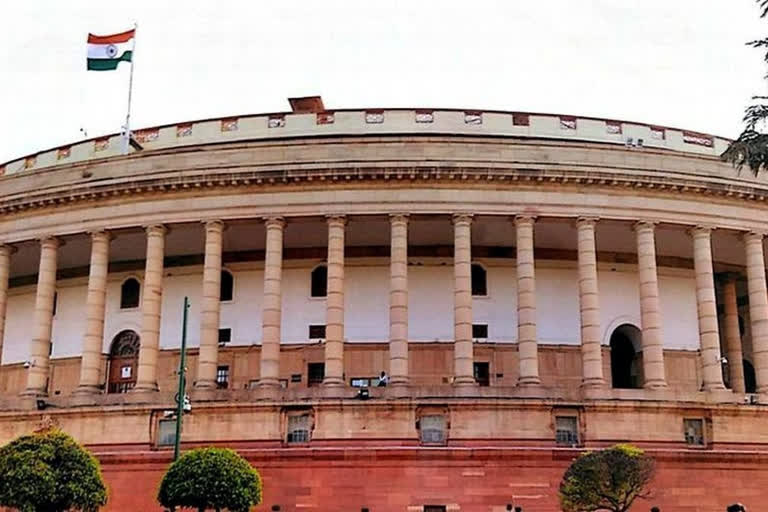New Delhi: The Narendra Modi government on Monday tabled the controversial Citizenship (Amendment) Bill, 2019 in the Lok Sabha amid strong objections by the Opposition parties.
The opposition parties unitedly said the proposed bill was "fundamentally unconstitutional" and in "violation" of Article 14 of the Constitution.
Introducing the Bill, Union Home Minister Amit Shah rejected allegations and fear of the opposition members, saying: "I assure that the Bill does not violate any article of the Constitution and that no citizen will be deprived of one's rights."
Every citizen has been given a place in the Bill on the basis of reasonable classification," the minister said.
He said the Bill seeks to provide Indian nationality to Hindus, Christians, Sikhs, Parsis, Jains and Buddhists fleeing persecution in Pakistan, Afghanistan and Bangladesh.
The Minister also said that the Bill has been introduced after analyzing the constitutions of Pakistan, Afghanistan and Bangladesh.
Referring to the Nehru-Liaquat Ali Khan agreement signed in 1950 after the partition of India and Pakistan, Shah said it was agreed to protect the rights of minorities, but only India followed it. Hindus, Christians, Sikhs, Parsis, Jains and Buddhists faced atrocities in Pakistan, Afghanistan and Bangladesh.
"The Bill is for those minorities who faced religious persecution in Pakistan, Afghanistan and Bangladesh," Shah said.
The Minister clarified as Muslim community was not persecuted in the three Islamic countries, the Bill specifically mentions to provide citizenship to six religious persecuted minorities.
"The people of the six minority communities who migrated to India following religious persecution in Pakistan, Bangladesh and Afghanistan will be given Indian citizenship as per this Bill. They are being given citizenship on the basis of reasonable classification. The Bill does not violate Article 14 of the Indian Constitution."
But, Shah said, the Bill is not against Muslim community and that if any Muslim seeks citizenship in India based on rules, he will be entertained as per the Article of the Bill.
Major opposition parties, including Congress, Trinamool Congress, Revolutionary Socialist Party, Dravida Munnetra Kazhgam (DMK), All India Majlis-e-Ittehad-ul-Muslimeen (AIMIM) and Indian Union Muslim League (IUML), opposed the Bill citing various articles of Constitution.
As per the Bill, those illegal migrants who have entered India up to the cut-off date of December 31, 2014 to seek shelter, and continued to stay here even if their travel documents expired or they have incomplete or no documents, will be eligible for Indian citizenship.
Under the existing provisions of the Act, migrants from Hindu, Sikh, Buddhist, Jain, Parsi or Christian communities from Afghanistan, Pakistan or Bangladesh who entered India without valid travel documents or if the validity of their documents has expired are regarded as illegal migrants and ineligible to apply for Indian citizenship under section 5 or section 6 of the Act.
The Centre exempted these migrants from the adverse penal consequences of the Passport (Entry into India) Act, 1920 and the Foreigners Act, 1946 and rules or orders made there under vide notifications, dated September 7, 2015 and date July 18, 2016.
Subsequently, the Centre also made them eligible for long-term visa to stay in India as per orders dated January 8, 2016 and September 14, 2016.
Now, the government, through the Bill, proposes to make these migrants eligible for Indian citizenship.



